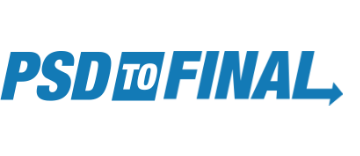Search Engine Friendly Development: Keyword Usage and Targeting
Part 3 of our 8-part series on developing search engine friendly website structures. This was originally written by Rand Fishkin and Moz Staff, and posted on posted Moz. Image courtesy Wikimedia Commons.
Keywords are fundamental to the search process. They are the building blocks of language and of search. In fact, the entire science of information retrieval (including web-based search engines like Google) is based on keywords. As the engines crawl and index the contents of pages around the web, they keep track of those pages in keyword-based indexes rather than storing 25 billion web pages all in one database. Millions and millions of smaller databases, each centered on a particular keyword term or phrase, allow the engines to retrieve the data they need in a mere fraction of a second.
Obviously, if you want your page to have a chance of ranking in the search results for “dog,” it’s wise to make sure the word “dog” is part of the crawlable content of your document.


Keyword Domination
Keywords dominate how we communicate our search intent and interact with the engines. When we enter words to search for, the engine matches pages to retrieve based on the words we entered. The order of the words (“pandas juggling” vs. “juggling pandas”), spelling, punctuation, and capitalization provide additional information that the engines use to help retrieve the right pages and rank them.
Search engines measure how keywords are used on pages to help determine the relevance of a particular document to a query. One of the best ways to optimize a page’s rankings is to ensure that the keywords you want to rank for are prominently used in titles, text, and metadata.
Generally speaking, as you make your keywords more specific, you narrow the competition for search results, and improve your changes of achieving a higher ranking. The map graphic to the left compares the relevance of the broad term “books” to the specific title Tale of Two Cities. Notice that while there are a lot of results for the broad term, there are considerably fewer results (and thus, less competition) for the specific result.
Keyword Abuse
Since the dawn of online search, folks have abused keywords in a misguided effort to manipulate the engines. This involves “stuffing” keywords into text, URLs, meta tags, and links. Unfortunately, this tactic almost always does more harm than good for your site.
In the early days, search engines relied on keyword usage as a prime relevancy signal, regardless of how the keywords were actually used. Today, although search engines still can’t read and comprehend text as well as a human, the use of machine learning has allowed them to get closer to this ideal.
The best practice is to use your keywords naturally and strategically (more on this below). If your page targets the keyword phrase “Eiffel Tower” then you might naturally include content about the Eiffel Tower itself, the history of the tower, or even recommended Paris hotels. On the other hand, if you simply sprinkle the words “Eiffel Tower” onto a page with irrelevant content, such as a page about dog breeding, then your efforts to rank for “Eiffel Tower” will be a long, uphill battle. The point of using keywords is not to rank highly for all keywords, but to rank highly for the keywords that people are searching for when they want what your site provides.
On-Page Optimization
Keyword usage and targeting are still a part of the search engines’ ranking algorithms, and we can apply some effective techniques for keyword usage to help create pages that are well-optimized. Here at Moz, we engage in a lot of testing and get to see a huge number of search results and shifts based on keyword usage tactics. When working with one of your own sites, this is the process we recommend. Use the keyword phrase:
- In the title tag at least once. Try to keep the keyword phrase as close to the beginning of the title tag as possible. More detail on title tags follows later in this section.
- Once prominently near the top of the page.
- At least two or three times, including variations, in the body copy on the page. Perhaps a few more times if there’s a lot of text content. You may find additional value in using the keyword or variations more than this, but in our experience adding more instances of a term or phrase tends to have little or no impact on rankings.
- At least once in the alt attribute of an image on the page. This not only helps with web search, but also image search, which can occasionally bring valuable traffic.
- Once in the URL. Additional rules for URLs and keywords are discussed later on in this section.
- At least once in the meta description tag. Note that the meta description tag does not get used by the engines for rankings, but rather helps to attract clicks by searchers reading the results page, as the meta description becomes the snippet of text used by the search engines.
And you should generally not use keywords in link anchor text pointing to other pages on your site; this is known as Keyword Cannibalization.


Leave a Reply
Want to join the discussion?Feel free to contribute!